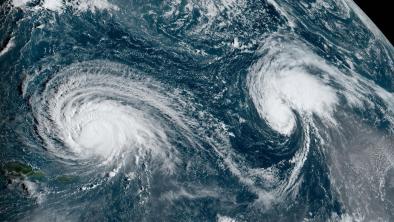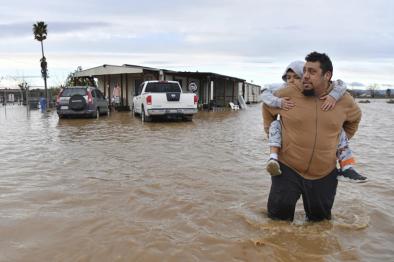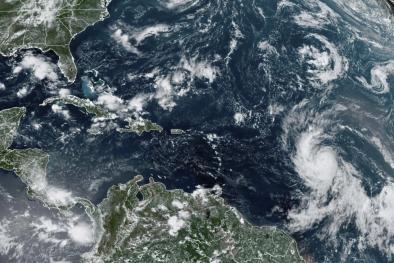Extreme Atlantic hurricane seasons made twice as likely by ocean warming
Study key findings & significance
- Extremely active Atlantic hurricane seasons are now twice as likely as they were in the 1980s due to global heating.
- The researchers found that the extremely active hurricane season of 2020 was 200% more likely than it was in 1982 and attribute this change to rising sea surface temperatures.
Author quotes
“While the attribution of individual tropical cyclone events remains difficult, there can be no doubt that climate change is creating more intense storms.”
Peter Pfleiderer, lead author of the study and scientist at the Berlin-based Climate Analytics
Abstract
Tropical cyclones are among the most damaging extreme weather events. An increase in Atlantic tropical cyclone activity has been observed, but attribution to global warming remains challenging due to large inter-annual variability and modeling challenges. Here we show that the increase in Atlantic tropical cyclone activity since the 1980s can be robustly ascribed to variations in atmospheric circulation as well as sea surface temperature (SST) increase. Based on a novel weather-pattern-based statistical model, we find that the forced warming trend in Atlantic SSTs over the 1982–2020 period has doubled the probability of extremely active tropical cyclone seasons. For the year 2020, our results suggest that such an exceptionally intense season might have been made twice as likely by ocean surface warming. In our statistical model, seasonal atmospheric circulation remains the dominant factor explaining the inter-annual variability and the occurrence of very active seasons. However, our study underscores the importance of rising SSTs that lead to more extreme outcomes in terms of cyclone intensity for the same seasonal atmospheric patterns. Our findings provide a new perspective on the contribution of ocean warming to the increase in recent hurricane activity and illustrate how anthropogenic climate change has contributed to a decisive increase in Atlantic tropical cyclone season activity over the observational period.
Related Content





